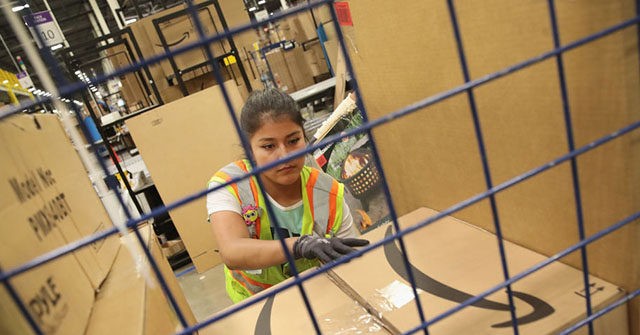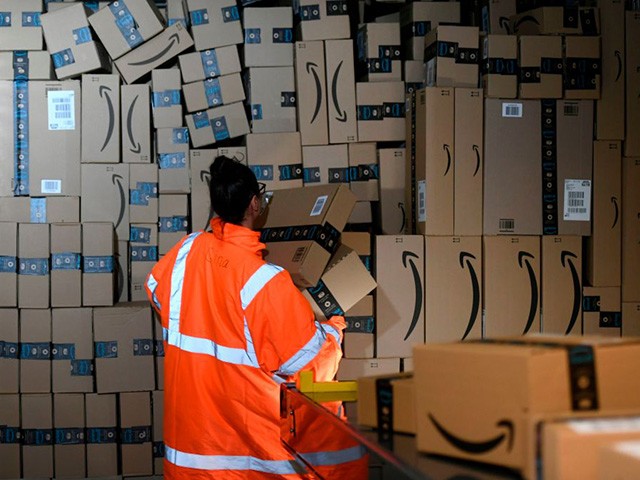
A group representing millions of Indian sellers on Thursday required a government investigation of Amazon.com following a Reuters report that implicated the online retail behemoth of manipulating search results page to advantage its own knockoff brand names over Indian retail merchandise.
“Amazon is causing an excellent downside to the little producers. They are eating the cake that is not implied for them,” Praveen Khandelwal of the Confederation of All India Traders informed Reuters on Thursday.
Reuters quoted an Indian official calling for an across the country boycott of Amazon, and an intense post from a not-for-profit called the Alliance of Digital India Structure (ADIF) that stated Amazon’s habits was “highly awful and brings into question the reliability of Amazon as a good faith operator in the Indian start-up community.”
The report that triggered these annoyed responses accused Amazon of creating knockoffs of Indian products, then controling its search engine result so consumers saw the knockoffs as included items before seeing the original items.
A staff member places jam-packed products loads container at the distribution center of United States online retail giant Amazon in Moenchengladbach, Germany, on December 17, 2019.( Ina Fassbender/AFP through Getty Images )CNBC explained that Amazon does not take the crude and obvious strategy of making its own top quality products appearing first in search engine result; rather, it presumably uses” search seeding” techniques to ensure its products appear near the top, then calls consumer attention to them with “shimmers” or on-screen banners.
Amazon has been implicated of doing this sort of thing in other markets, but Reuters reviewed “countless pages of internal Amazon documents” that described a vast and meticulously-planned campaign to muscle Indian merchants out of their own market, which takes place to be among Amazon’s biggest development chances:
Among the victims of the strategy: a popular shirt brand in India, John Miller, which is owned by a business whose chief executive is Kishore Biyani, referred to as the country’s “retail king.” Amazon decided to “follow the measurements of” John Miller shirts to the neck area and sleeve length, the document states.
The internal files also show that Amazon staff members studied exclusive information about other brand names on Amazon.in, including in-depth info about consumer returns. The objective: to recognize and target products– described as “recommendation” or “benchmark” products– and “reproduce” them. As part of that effort, the 2016 internal report set out Amazon’s method for a brand name the company originally produced for the Indian market called “Solimo.” The Solimo technique, it said, was basic: “utilize info from Amazon.in to develop items and then leverage the Amazon.in platform to market these items to our customers.”
The Solimo job in India has had international impact: Ratings of Solimo-branded health and family items are now marketed on Amazon’s U.S. website, Amazon.com.
Among the Amazon documents referred to the competence of initial producers– which Amazon’s “partnership” employees were apparently sent out to study and replicate– as “tribal understanding.”
Reuters stated the Amazon files laid out a “official, private technique” to mimic Indian retail items and control search engine result. These are both activities that Amazon executives– consisting of creator Jeff Bezos– have repeatedly sworn to Congress under oath that the business would never ever engage in.
CEO of Amazon Jeff Bezos( R) lights a standard lamp along with Amit Agarwal(3L), senior vice president and country manager for Amazon India, throughout Amazon’s annual Smbhav event in New Delhi on January 15, 2020.(Picture by Sajjad Hussain/AFP by means of Getty Images )Bezos specifically mentioned in July 2020 that Amazon has”a policy versus utilizing seller-specific information to assist our personal label organization,” however included that he might not”guarantee that policy has actually never ever been violated.” The Reuters expose suggested it was breached with gusto in India by some relatively top-level Amazon workers.
“It deserves keeping in mind that Amazon has on several occasions, including during official hearings, denied any misdeed that involves making use of consumer data to drive benefit for its own brands and products,” the ADIF stated in its blog post on Thursday:
Amazon taking advantage of customer data that they remain in belongings of, utilizing that information to the detriment of the brands and sellers that helped generate the information in the first place, and after that rigging search results page to further injure the initial brand names is a financial offence of the highest order, one that has harmful repercussions for markets and falls foul of fair competition practices.
“The unfiltered insight the files use into Amazon’s aggressive usage of its market power might magnify the legal and regulatory pressure the business is dealing with in many nations,” Reuters predicted.
Sen. Elizabeth Warren (D-MA) quickly reacted to the Reuters report by requiring the break up of Amazon:
These documents reveal what we feared about Amazon’s monopoly power– that the business wants and able to rig its platform to benefit its bottom line while stiffing small companies and entrepreneurs. This is one of the lots of reasons we require to break it up.https://t.co/ 1M0Tfa2TnV
— Elizabeth Warren (@SenWarren) October 13, 2021
The Economic Times noted that even before the Reuters expose was published, some Hindu media outlets were comparing Amazon to the East India Business– the corporate supervillains of the British colonial age– while a whistleblower implicated Amazon of paying off Indian authorities.
The Economic Times recommended Amazon might be assaulted from numerous quarters of Indian politics because the Diwali holiday is showing up, the Wuhan coronavirus pandemic is declining, and the fight for Indian consumer costs will likely be fierce. Furthermore, there is considerable anxiety in India about foreign business looking for to destabilize the economy.
When Reuters welcomed Amazon to react to its story on Wednesday, the business responded that it could not “verify the veracity” of the files Reuters obtained however stated it believed the accusations in the report were “factually inaccurate and unverified,” without discussing why.
Amazon firmly insisted to Reuters that it displays its search engine result “based on relevance to the client’s search query, irrespective of whether such products have private brands provided by sellers or not.”
Amazon’s response also duplicated Bezos’ assertion that company policy “strictly prohibits the usage or sharing of non-public, seller-specific data for the advantage of any seller, including sellers of private brand names.”



